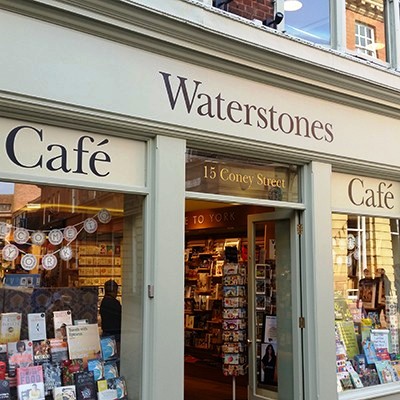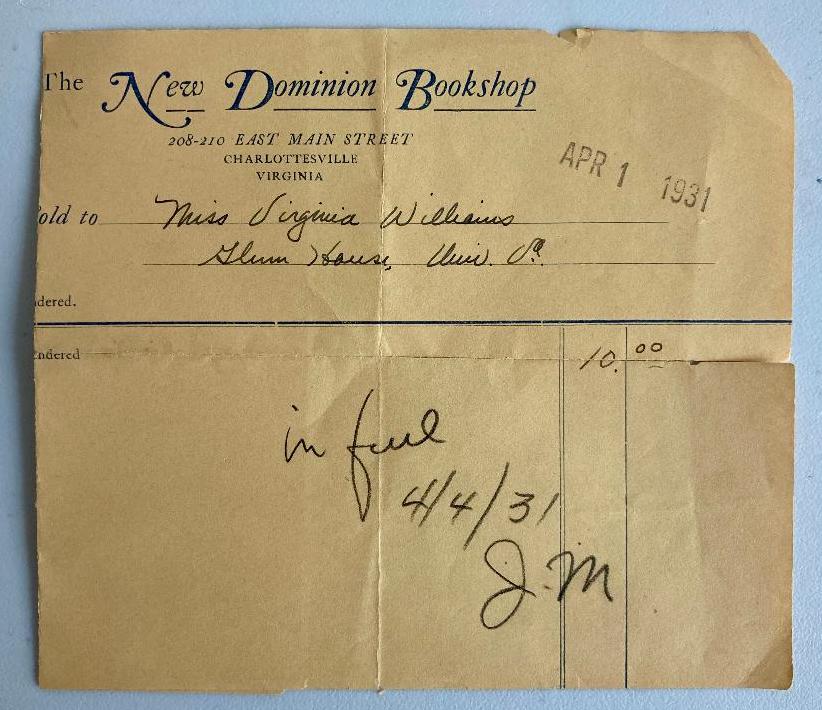Waterstones: Despite Pandemic, 'Financially Resilient'
 In the full fiscal year ended April 25, 2020, sales at Waterstones fell 4.3%, to £376 million (about $532.4 million), and profits after tax fell 8.4%, to £20.8 million ($29.5 million), the Bookseller reported, noting that the information was filed later than normal because of the pandemic. These are the first full fiscal year results filed since Elliott Advisors bought Waterstones.
In the full fiscal year ended April 25, 2020, sales at Waterstones fell 4.3%, to £376 million (about $532.4 million), and profits after tax fell 8.4%, to £20.8 million ($29.5 million), the Bookseller reported, noting that the information was filed later than normal because of the pandemic. These are the first full fiscal year results filed since Elliott Advisors bought Waterstones.
Waterstones said that it has entered the current fiscal year "in a strong position and well placed for a return to growth in both sales and profits." Stores have been performing "above base forecast" since April reopenings. "Footfall and sales continue to recover but remain depressed, notably in London and other metropolitan city centres."
Waterstones added that demand for books "was strong immediately prior to the enforced closure of the shops" and that after the closures, online business performed strongly. The company "successfully repurposed the distribution centre as an online fulfilment operation" although "margins were lower due to shipping costs and the additional costs associated with social distancing measures within the distribution centre."
A Waterstones spokesperson told the Bookseller that "during the periods of enforced closure, tight control of costs aided by the government support measures and the welcome sharing by most of our landlords of the impacts of closures have ensured the financial resilience of the company."
Managing director James Daunt, who is also CEO of Barnes & Noble, told the Bookseller, that the year ended April 25, 2020, "was a good year and then it began to go a little bit wrong, I think, towards the back end of January [2020]. Initially it took a while to sort of get to grips with it, you've got all the PPE costs, and putting yourself effectively into sort of hibernation. I think we sort of did that, we certainly acted very quickly and that stood us in pretty good stead to take us through the year that then followed which has obviously been pretty frustrating."
Daunt added that "lockdown favoured all the ways in which people mentally occupy themselves, in which books are obviously the primary one and our primary business, but also board games and toys. We literally sold every single puzzle that we could get hold of which is fantastic and we are a major puzzle retailer and always have been....
"The reality is that there's a retail spending boom going on. People are not spending it on hospitality, they're not spending it on foreign travel, there's money in people's pockets and they're spending it in shops and online. It is a really good time for booksellers and for publishers, we just have to hope through decent policies and the vaccination programme we're able to stay open."
Foyles, which has seven bookstores and which Waterstones bought in 2018, reported separately. Its sales rose 0.4%, to £22.7 million ($32.1 million) while its loss after taxes grew to £1.8 million ($2.5 million) from £106,561 ($150,875).






SHELFAWARENESS.0213.S4.DIFFICULTTOPICSWEBINAR.gif)







SHELFAWARENESS.0213.T3.DIFFICULTTOPICSWEBINAR.gif)



 Harley the Hero
Harley the Hero
 Book you're an evangelist for:
Book you're an evangelist for: This YA debut by Ryan Douglass is an exceptional blend of genres--horror, mystery, thriller and contemporary--that brilliantly captures how Jake, a Black gay teen medium, copes with the varying kinds of violence threatening him.
This YA debut by Ryan Douglass is an exceptional blend of genres--horror, mystery, thriller and contemporary--that brilliantly captures how Jake, a Black gay teen medium, copes with the varying kinds of violence threatening him.